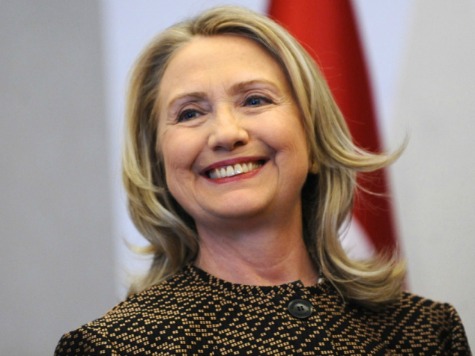President Barack Obama will be visiting South Africa for the second time this year to attend Nelson Mandela’s memorial services. So, too will all other living past U.S. presidents–including Jimmy Carter, who worked with Mandela after the latter retired from politics, and George W. Bush, who did more for Africa than any other but is probably appreciated least. And then there is Bill Clinton, who remains South Africa’s favorite U.S. president–more so even than Obama, who is viewed as a disappointment. Politically, crudely, this is Hillary’s moment.
South Africans love Clinton partly because he happened to be in power when their country made its historic transition. He was there to welcome South Africa back into the international community, and he was there to welcome President Mandela as a fellow world leader. Clinton was also, back then, the “first black president,” and charmed the South African public with the same folksy manner he used to build his political coalition. He was different, too, from other Democrats, seeing potential in globalization, looking for friends rather than foes.
Clinton matched the Mandela mood. Obama, by contrast, has much more in common with Mandela’s successor, Thabo Mbeki, whose top-down leadership, aloof manner, and cronyism made him distinctly unpopular. Like Obama, Mbeki was thin-skinned and divisive, arrogant and jealous of sharing power with the other branches of government.A man who brooked no dissent within the ruling party, and who shunned the opposition, Mbeki left office before finishing his second term after being ousted as party leader by the populist Jacob Zuma.
Zuma has been sour on Obama ever since the Libya war. The South African government had maintained close ties with Muammar Gadhafi, dating back to the anti-apartheid struggle, and saw him as one of the continent’s few unifying figures, comical though he often was. Gadhafi had backed one of South Africa’s most important diplomatic projects, the African Union. His ouster was seen by the South African government as more of the same interventionism it had decried when Bush invaded Iraq. Obama, then, was seen as something of a sellout.
South Africans still like Obama and his family. They vastly prefer him to any of his Republican opponents, the more so as American conservatives get extremely bad press in South Africa (as they do in much of the social democratic world). But they also know a failure when they see one, and Obama’s failure in nearly every aspect of his presidency has not failed to make an impression. Clinton, by contrast, is remembered, mostly correctly, as having been a success. His America was a confident one, buoyed by prosperity and a post-Cold War glow.
I was once in the audience at a speech by Bill Clinton at the University of the Western Cape. I wore an American flag in my baseball cap, attracting hostile stares from some in the academic audience, for whom skepticism of the U.S. is fundamental intellectual principle. And yet as soon as Clinton reached the stage–looking tired and haggard, thin from months of dieting–the same people leapt to their feet in rapt applause. In his flaws, South Africans see their own failures. In his successes, they somehow see their hopes. He is the America they love.
Obama is the America of the South African elites, envious of America’s success and eager to see it more humble on the world stage. He says the right things about the need for government. He comes bearing gifts. But most South Africans are tired of Obama’s exhortations about transformation. They have heard the same from their own leaders for years. Bill Clinton knows how to bypass the dogma and go straight to the heart. He won over Israelis at Yitzchak Rabin’s funeral with: “Shalom, chaver. Goodbye, friend.” Expect something of an encore.
And expect Hillary Clinton to make the most of the moment. This is her chance, finally, to eclipse the man who beat her to the top with the help of a fawning media and disloyal superdelegates. This is her chance to overcome the spurious but effective charges of racism that the Obama campaign used against her to undermine her among black voters. She will know how to place herself in the media spotlight without seeming to have done so, and will make the best use of her husband’s popularity, the better to cast herself as his true American successor.

COMMENTS
Please let us know if you're having issues with commenting.